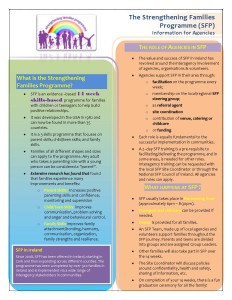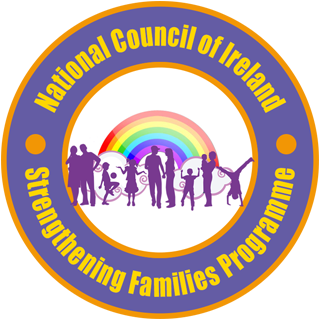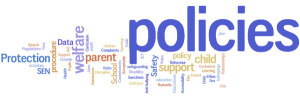 We strive to share helpful information with communities and agencies who are implementing or wish to explore possibilities of rolling out SFP. We’ve included below some key learning and resources from Council Members for areas to consider and some documents and resources from various sites to help in your implementation. Council Members are available for further information on their own sites and suggestions for moving forward.
We strive to share helpful information with communities and agencies who are implementing or wish to explore possibilities of rolling out SFP. We’ve included below some key learning and resources from Council Members for areas to consider and some documents and resources from various sites to help in your implementation. Council Members are available for further information on their own sites and suggestions for moving forward.
Setting Up and Sustaining SFP
The interagency, community element of SFP has long been established in Ireland, and remains a unique approach to the implementation of the programme when compared to worldwide sites. The programme developers, Dr. Karol Kumpfer and co., have developed Fidelity guidelines (see: SFP FIDELITY BENCHMARKS 2012 ) for recommendations for all generic sites. Irish sites have retained the fundamentals (such as incentives, childcare, transport, and dinner) to varying degrees,
and have further implemented policies, practice and training with respect to the Irish context.
What to consider[hide]
SFP Preparation & Planning
- Community buy-in: The strength of the programme comes from key stakeholders buying into the process. The interagency buy-in of multiple agencies (community, statutory and voluntary sectors) has proven to be of paramount importance in the SFP implementation. Relevant stakeholders should be involved in a consultation process to assess need, and interest in involvement. This need should involve exploring which Strenghtening Families Programme the area wishes to implement (i.e 6-12 years or 12-16 years). Agencies and volunteers can take on various roles such as Facilitators/Group Leaders on the programme, Site Coordinator, Steering Committee member, Referral Agent, Back up Support/Floater. A sample list of roles and responsibilities can be found at Ballymun – Overview SFP Roles and Descriptions. While some agencies core business will be working in a family context, others may differ. However, the family model of this approach is a helpful tool in supporting both the agency’s work and family outcomes.
- A multitude of various statutory, community and voluntary agencies are involved nationwide including family support, justice including probation and prison services, education, health, drugs and alcohol, & youth services. A community buy-in should encompass a broad range of stakeholders.
- Each region/county should establish a multi-agency Steering Committee which leads the development and implementation of SFP in their area (particularly referring to the Practical Logistics below).
- Steering Committees can then liaise with relevant Regional Steering Committees and the National SFP Council of Ireland to enable shared learning and increasing knowledge; contributing to good practice, and enhancing a national approach to and for SFP.
-
Practical Logistics
- Venue: A suitable venue for multipurpose needs. Most programmes aim for at least 12 referred families, with a minimum retention of 8. Some programmes require 4 rooms for facilitation alone (2 x parents groups; 2 x teens groups; 2 x family groups) which should be an appropriate size and suitable for the groups; dining / coffee area; and suitable childcare space if providing childcare onsite (please note facilities and staff for 0-5 year olds must comply with the Childcare (Pre-School Services) Regulations 2006). Venues can be provided “in-kind” as a community contribution to SFP.
- Funding: The amount required will consider: catering; rent; childcare; transport; incentives; evaluation; handbooks/materials; & graduation. Areas receive various amounts of funding from sometimes different sources and the cost of each programme can range from €6,000 upwards. Community implementations have been funded in part or full by Local/Regional Drugs Task Forces; Le Cheile; Family Resource Centres; Tusla; School Completion Programmes; Children’s Services Committees; Pobail; and the HSE. All staff must comply with regulations to work with vulnerable children and adults (e.g. Child Protection training, Garda Vetting, etc).
- Incentives: An incentive is designed to encourage or motivate attendance and/or participation. Incentives can be given to teens/children &/or parents, depending on your budget the frequency/amount of or number of incentives can vary.
- Examples of incentives: phone credit, sports voucher, games vouch every week/every few weeks to teenagers who attend; parents may receive a voucher for a local supermarket; other areas may rotate one or two incentives every week based on participation or raffle. Incentives can be sought from the community in-kind.
- Transport/childcare/dinner: As part of fidelity to the model of SFP, it is important that barriers which may affect attendance are reduced. This includes an opportunity for families to have transport to / from the venue. While individual taxi’s may be an option in closer geographical communities, more disparate areas may find using a community bus more cost effective. Childcare, for those with younger members of the family, can significantly enhance the ability of families to engage. Where appropriate, onsite facilities, such as an authorised creche for under 6’s, and a separate room for 6-11 year olds for activity based sessions). Where onsite facilities are not available, consideration may be given to a childcare contribution which would support the parent/guardian to access their own childcare. A dinner is provided for the team and families to eat together at the start of every evening, which has a number of benefits including: enhanced opportunities for relationship building (family-team, family – family, and within families); eliminates the need to prepare dinner in the evening before the programme; and increases communication within families. Bearing in mind that for some families, eating together may not be a regular occurence for various reasons, and this can be a time to support and encourage a model of bonding.
- Evaluations: Ensuring positive outcomes for families is a key priority for all communities and services. Evaluation methods should be considered in the planning phase so that relevant costings can be accounted for and included in the budget.
- Promotional materials are useful sources of information for agencies and families alike. They provide quick access to understand what the programme is about, and how to apply. Leaflets, posters, calendars, reports, advertisements, email can all be used to promote the programme.
- Incentives: An incentive is designed to encourage or motivate attendance and/or participation. Incentives can be given to teens/children &/or parents, depending on your budget the frequency/amount of or number of incentives can vary.
- Training: SFP Training is a pre-requisite for all who wish to support SFP (particularly Site Coordinators and Facilitators / Floaters). In some cases Referral Agents are trained up to establish a community buy in and understanding of the programme. The Steering Committee may recommend training needs going forward. The National SFP Council Trainers Panel can offer free training, if needed. Please go to the Training Section to learn more. Accessing training is a commitment from agencies/volunteers to support SFP in their area.
- Referrals: Family referrals can come from multiples sources (services may include family support, drug/alcohol, schools, youth clubs, social work, housing, probation, etc). Self-referrals may also be accepted.
Policies & Procedures
A significant amount of work has been undertaken by Steering Committees & SFP Coordinators to formulate policies and procedures for the safe and effective implementation of SFP in their respective areas. Although SFP is not a legal entity in its own right (as the interagency component makes up a combination of legal entities governing it), the development of policies and procedures, and agreements amongst your agency stakeholders, will provide clear, transparent clarification in the event an issue may arise. It sets the principles,ethos and law under which SFP works from. Some will be standard such as Child Protection issues, but your Designated Liaison Person and follow up procedure should be laid out in full (for example, if a child protection issue arises on the programme, who is reported to?; who has responsbility for making a report – SFP or referral agent? etc). Examples of policies and procedures can be found at the following links:
Ballymun Sample Policies & Procedures SFP
Le Cheile SFP Information Pack
A Site Coordinator Information Pack has also been drawn up by Cork SFP Steering Committee, which is available with training from Cork. For further information on your relevant area, please contact the relevant agency.
SFP Training
A 2 day training in SFP, as required by the developers of the programme, is a necessary pre-requisite for implementing SFP. Please see our section on training for further information and how to access training.
SFP Evaluation
Evaluations are an important tool in measuring outcomes and success /benefits of your programme. During a planning/preparation phase, it is useful to consider the measurement you would like to use, how it will be applied and who will conduct it. Self-reporting questionnaires, focus groups, feedback forms can be collated. Referral agents, the SFP Delivery Team, Site Coordinator and families are all useful sources of feedback.
- SFP standardised evaluation tools can be made available from the Council, or indeed the USA Developers, and includes a retrospective pre and post questionnaire tool for parents and teens/children. The analysis of these forms can take place at a cost in the USA where a large national database of SFP in Ireland is currently held.
- Alternatively, some communities have compiled independent research, internal evaluations or internally analysed data using the standardised assessment tool.
- While the National SFP Council recognises the challenge to communities to include cost-based evaluations, we would encourage SFP Steering Committees to account for some form of evaluation which would measure the outcomes/impact for families. Completed reports from local sites in Ireland can be found here.




